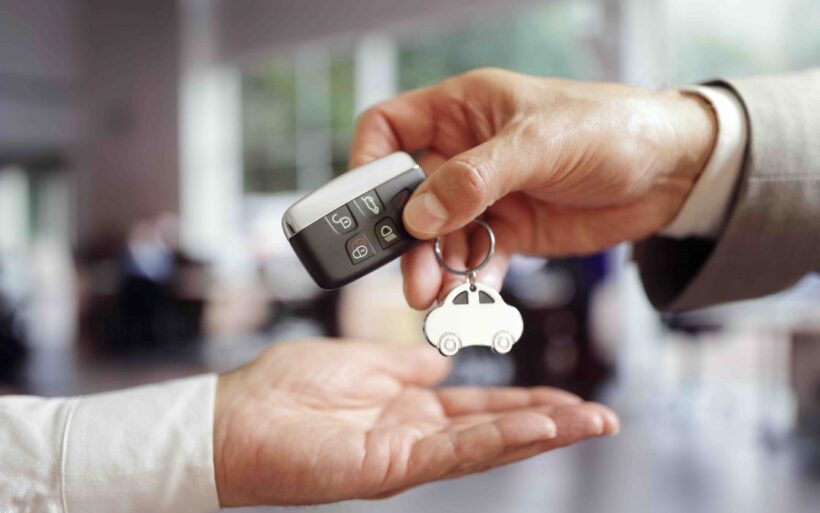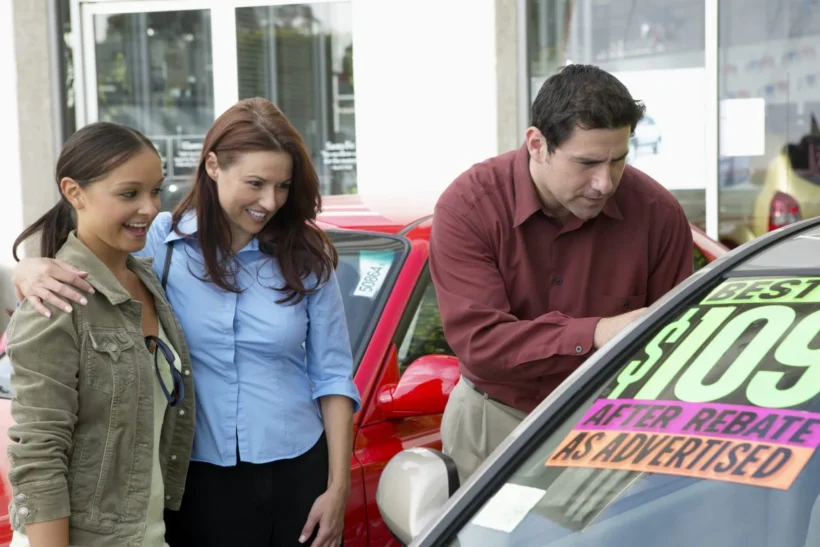When buying a used automobile, study and preparation can help you avoid costly mistakes and get the greatest deal. Without proper direction, buying a used car may be thrilling but intimidating. Before buying a used car, follow these ten steps to make an informed selection.
Set Your Budget

Before buying a secondhand car, set a reasonable budget. Your budget should include the purchase price and all car ownership costs. Insurance, taxes, registration, fuel, maintenance, and repairs. Common budgeting guidelines include the “20/4/10” rule. This approach recommends putting down at least 20% of the car’s purchase price, financing it for no more than four years, and keeping car-related expenses (loan payment, insurance, and maintenance) under 10% of your monthly income. Follow this advice to avoid overspending and keep your car economical.
Research the Model
After setting a budget, research the used car you want. First, study the car’s make and model. Check expert, owner, and dependability ratings. Consumer Reports, Edmunds, and Kelley Blue Book can aid this study. Reliability matters. Be sure to conduct an online research to check out online car sales like ruby-car.com that provide all the details from car model, mileage, prices and more to guide your purchase. Reliable cars have fewer breakdowns and maintenance and higher resale value. You should check the model’s history for common issues or recalls. This information may help you decide and avoid future issues.
Check Vehicle History

A car history report is essential next. This requires the seller’s VIN. With this VIN, you can get a detailed report from Carfax or AutoCheck. This report reveals the car’s history in great detail. Accidents, title difficulties, mileage anomalies, and major repairs will be listed in the vehicle history report. This information is crucial for assessing the car’s condition and history. Red flags in the report may suggest hidden issues. When you feel something does not sit right with the car you’ve chosen, avoid it. Additionally, you may opt for reputable car dealers who offer warranty for a few months to offer you confidence in the used car.
Inspect the Car in Person
No matter how appealing an automobile looks online or in photos, you must see it in person before buying. Contact a reputable mechanic or informed friend if you’re not familiar with automobile mechanics. Start by checking the car’s exterior for damage, rust, or wear. Check for paint discrepancies that may suggest an accident or touch-up. Check tire condition and tread depth. Inconsistent tire wear may indicate alignment concerns. Look for wear and tear within the automobile. Focus on seats, dashboard, and steering wheel. Check the trunk or cargo area for water damage or rust, which could suggest seal problems.
Evaluate Ownership Costs

Look beyond the purchase price and consider long-term ownership costs when buying a secondhand car. Features include fuel efficiency, insurance prices, and expected maintenance costs. Varied cars have varied fuel efficiency ratings, which might affect your costs. Check the car’s MPG and estimate your annual fuel bills based on your driving habits. Choose a car that fits your budget and reduces gasoline costs.
Insurance premiums vary greatly by automobile model, location, and driving history. Get insurance rates for the car you want before buying. This stage will explain your new car’s insurance prices. Research car maintenance expenses and demands. Some cars are expensive to maintain due to specific parts or regular repairs. Know these potential costs before making a decision.
Get a Pre-purchase Inspection
Having a professional inspect the car is just as important as doing it yourself. A trained technician can find hidden flaws during a pre-purchase examination that a test drive or eye inspection may miss. The mechanic will inspect the car’s mechanical, electrical, and general condition. They’ll check for wear, damage, and future issues. Should the examination show severe issues, you may want to reconsider your purchase or negotiate repairs with the seller.
Negotiate the Price

After researching and inspecting, negotiate the price with the seller. Negotiation is common in used car sales and can save you money. Start with a fair but lesser offer than the seller’s. Use research to support your offer, such as the car’s market value, condition, or repairs. Be patient and flexible throughout negotiations. If the seller won’t bargain or we can’t agree on a price, leave. There are many second hand cars, so select one that meets your demands and budget.
Review the Paperwork
Review any used automobile documents before closing the sale. This stage ensures the transaction is legal and you have all the paperwork. Check if the vendor has a clear automobile title first. A clear title proves the seller owns and can sell the automobile. Beware of title difficulties including liens or ownership discrepancies.
Make sure all essential documents are in order. The owner’s manual, maintenance records, and car warranties or service contracts are included. These records provide a detailed vehicle history and maintenance requirements.
Consider Warranty

The manufacturer’s warranty or an extended warranty may apply to the used automobile you buy, depending on its age and usage. A warranty protects against unforeseen repair costs, giving you peace of mind. Ask about warranties from the seller or dealership. Understand the warranty terms, including deductibles and limitations. Warranties can increase car costs yet protect against pricey repairs.
Arrange for Financing
If you’re not buying a used automobile cash, consider financing. Car financing lets you pay for it over time, making it more cheap. However, the finest financing terms are essential to reduce interest costs. Look for the best interest rates and loan terms. You can finance through a bank, credit union, or dealership. Consider interest rates, loan duration, and special financing offers when choosing an alternative.
Before finalizing financing, read the loan agreement. Understand the conditions, interest rate, monthly installments, and early repayment penalties. Check your credit record and fix any concerns before applying for a loan because your credit score can affect your eligibility and interest rate.
Endnote
Buying a used car is a major financial decision that requires careful planning and study. Setting a budget, studying the model, reviewing the vehicle’s history, inspecting the automobile in person, and assessing ownership expenses are crucial. Getting a pre-purchase examination, negotiating the price, examining the paperwork, considering warranty options, and arranging financing are also important.

